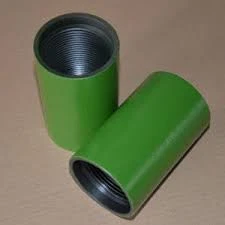- Afrikaans
- Albanian
- Amharic
- Arabic
- Armenian
- Azerbaijani
- Basque
- Belarusian
- Bengali
- Bosnian
- Bulgarian
- Catalan
- Cebuano
- Corsican
- Croatian
- Czech
- Danish
- Dutch
- English
- Esperanto
- Estonian
- Finnish
- French
- Frisian
- Galician
- Georgian
- German
- Greek
- Gujarati
- Haitian Creole
- hausa
- hawaiian
- Hebrew
- Hindi
- Miao
- Hungarian
- Icelandic
- igbo
- Indonesian
- irish
- Italian
- Japanese
- Javanese
- Kannada
- kazakh
- Khmer
- Rwandese
- Korean
- Kurdish
- Kyrgyz
- Lao
- Latin
- Latvian
- Lithuanian
- Luxembourgish
- Macedonian
- Malgashi
- Malay
- Malayalam
- Maltese
- Maori
- Marathi
- Mongolian
- Myanmar
- Nepali
- Norwegian
- Norwegian
- Occitan
- Pashto
- Persian
- Polish
- Portuguese
- Punjabi
- Romanian
- Russian
- Samoan
- Scottish Gaelic
- Serbian
- Sesotho
- Shona
- Sindhi
- Sinhala
- Slovak
- Slovenian
- Somali
- Spanish
- Sundanese
- Swahili
- Swedish
- Tagalog
- Tajik
- Tamil
- Tatar
- Telugu
- Thai
- Turkish
- Turkmen
- Ukrainian
- Urdu
- Uighur
- Uzbek
- Vietnamese
- Welsh
- Bantu
- Yiddish
- Yoruba
- Zulu
stainless steel coupling
Understanding Stainless Steel Couplings A Comprehensive Overview
Stainless steel couplings are critical components in various industries, serving as essential connectors for piping and mechanical systems. Their robust nature and corrosion resistance make them ideal for applications where durability and reliability are paramount. In this article, we will explore the features, types, advantages, and applications of stainless steel couplings, providing a comprehensive understanding of this essential engineering component.
Features of Stainless Steel Couplings
Stainless steel couplings are designed to connect two shafts or pipes securely. They are typically constructed from high-quality stainless steel, which contains a minimum of 10.5% chromium, providing exceptional resistance to corrosion and oxidation. This feature is particularly important in environments exposed to moisture, chemicals, and varying temperatures.
In addition to their corrosion resistance, stainless steel couplings can withstand high pressures and extreme temperatures, making them suitable for a wide range of applications. Their tensile strength and durability ensure a long service life, reducing the need for frequent replacements and repairs.
Types of Stainless Steel Couplings
There are several types of stainless steel couplings, each designed for specific applications and requirements
1. Rigid Couplings These couplings provide a fixed connection between shafts, maintaining alignment and transmitting torque efficiently. They are commonly used in applications where precision and reliability are essential.
2. Flexible Couplings Designed to accommodate slight misalignments between connected shafts, flexible couplings offer some degree of movement. This feature allows for thermal expansion and vibration absorption, making them ideal for dynamic systems.
3. Split Couplings These are easy to install and remove, as they can be opened and closed without the need to disassemble connected components. Split couplings are ideal for applications where maintenance is required frequently.
4. Sleeve Couplings Typically used for aligning and connecting two shafts end-to-end, sleeve couplings provide a simple and effective way to join shafts in various mechanical systems.
5. Clamp Couplings These couplings use a clamping mechanism to hold components together, providing a secure connection while allowing for easy disassembly. They are often used in applications where quick maintenance or adjustments are necessary.
Advantages of Stainless Steel Couplings
stainless steel coupling

Stainless steel couplings offer numerous advantages over couplings made from other materials. Some of the key benefits include
- Corrosion Resistance Their ability to resist rust and corrosion makes stainless steel couplings suitable for use in harsh environments, including marine, chemical, and food processing industries
.- Durability Stainless steel's high tensile strength ensures longevity, reducing the frequency of replacements and maintenance.
- Temperature Resistance Stainless steel can withstand extreme temperatures without compromising performance, making it an excellent choice for applications in fluctuating thermal environments.
- Versatility With various types available, stainless steel couplings can be used in a wide range of applications, from automotive and aerospace to plumbing and HVAC systems.
Applications of Stainless Steel Couplings
The versatility of stainless steel couplings makes them suitable for numerous applications, including
- Industrial Machinery They are often found in conveyors, compressors, and pumps, where secure connections between shafts are essential for efficient operation.
- Pipe Systems In plumbing and mechanical piping systems, stainless steel couplings connect pipes, ensuring leak-proof and durable installations.
- Automotive and Aerospace In these industries, stainless steel couplings are used in drivetrain components and various mechanisms, where reliability under high stress is crucial.
- Food and Beverage The corrosion resistance and ease of cleaning make stainless steel couplings ideal for applications in food processing, ensuring safety and hygiene.
In conclusion, stainless steel couplings are vital components in many industries, offering durability, corrosion resistance, and versatility. Understanding their various types and advantages can help engineers and technicians select the appropriate coupling for their specific applications, ensuring reliability and efficiency in their systems. As technology advances and industries evolve, the importance of high-quality connectors like stainless steel couplings will only continue to grow.
-
Well Casing Extension Couplings – Applications and InstallationNewsJun.06,2025
-
Types of Crossover Subs in Drilling & CompletionNewsJun.06,2025
-
Key Features of High-Quality Tubing Pup JointsNewsJun.06,2025
-
Installation and Maintenance Tips for Steel Couplings for PipeNewsJun.06,2025
-
How to Select the Right Pup Joint for Oil & Gas OperationsNewsJun.06,2025
-
Applications of Stainless Steel Pipe CouplingsNewsJun.06,2025







